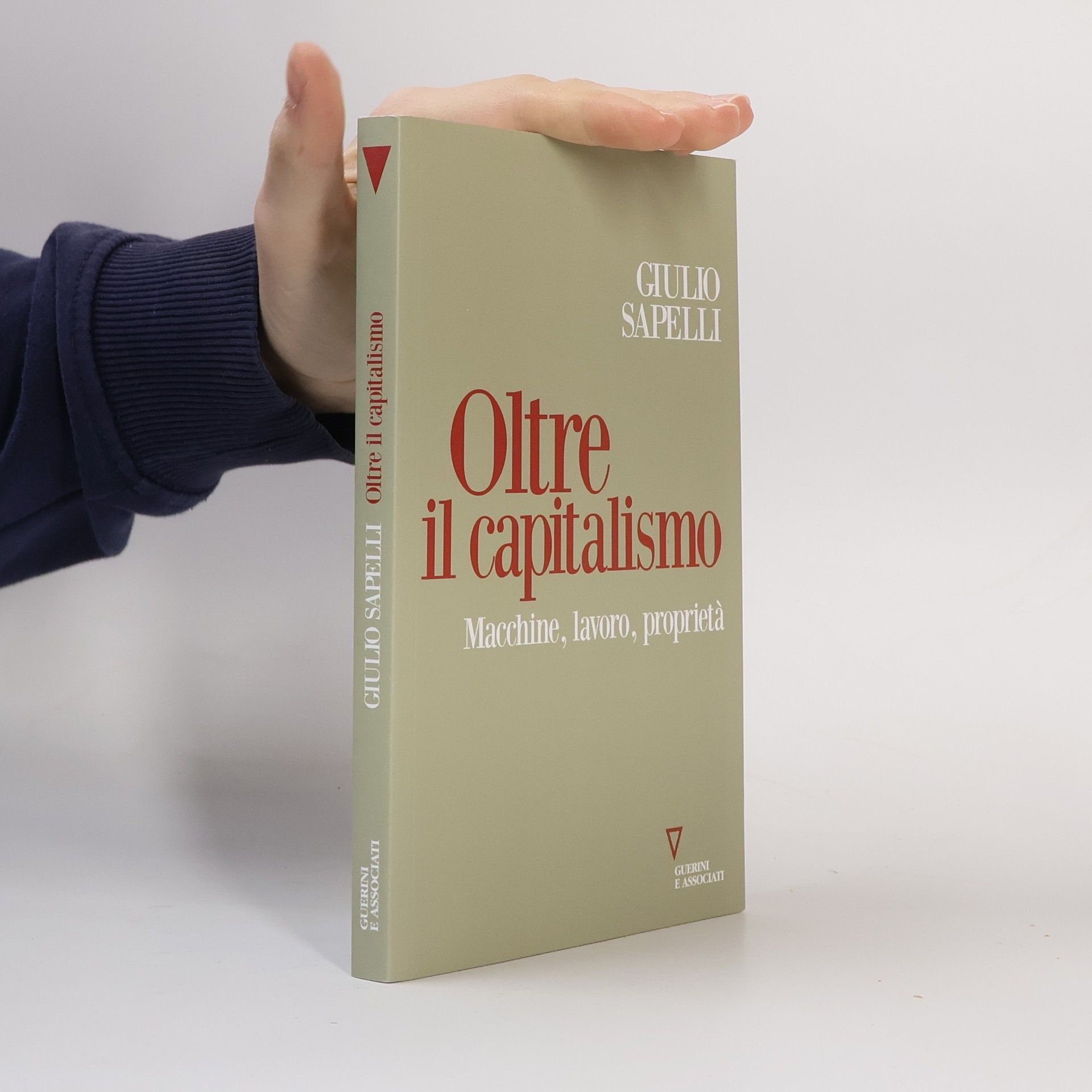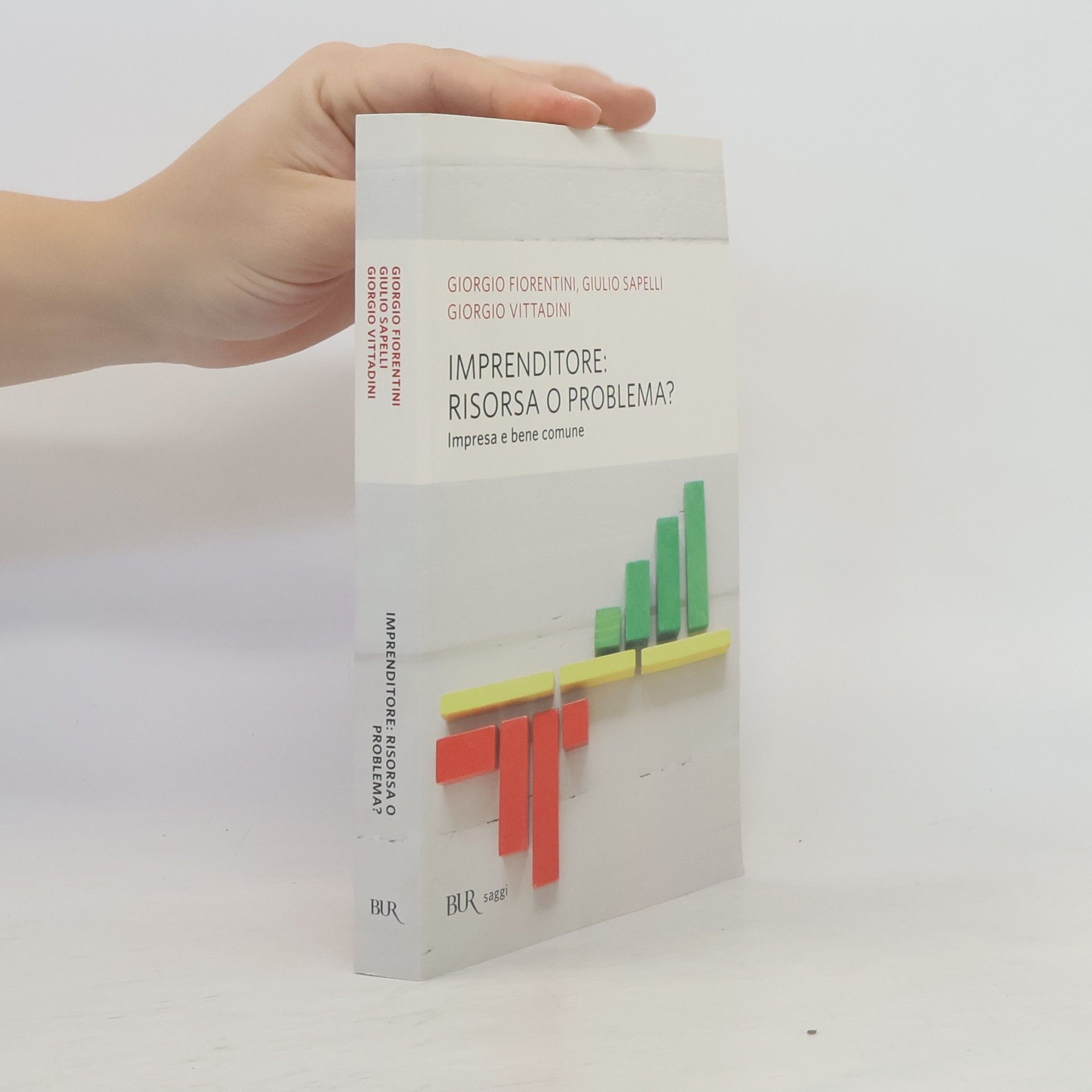The book examines the financialisation of the economy and its impact on technological transformation within a globalised context. It highlights the decline of capitalist property, leading to a resurgence of pre-capitalist social issues like slavery, alongside the adverse effects of deflation and the erosion of welfare systems. Despite these challenges, the author posits a hopeful future through the emergence of community-based socialism, emphasizing diverse ownership models, cooperative living, and sustainable property practices as potential solutions.
Giulio Sapelli Bücher
Als Professor für Wirtschaftsgeschichte an der Universität Mailand und Kolumnist des Corriere della Sera gehört dieser Autor zu den unabhängigsten, originellsten und unkonventionellsten Stimmen unter den italienischen Ökonomen. Als vielseitiger Intellektueller verbindet er Geschichte, Philosophie, Soziologie und Geisteswissenschaften in einem sehr persönlichen und prägnanten Stil. Seine Arbeit zeichnet sich durch eine tiefe Auseinandersetzung mit wirtschaftlichen Phänomenen aus, die in einen breiteren soziokulturellen Kontext gestellt werden. Die Leser werden seine Fähigkeit schätzen, scheinbar disparate Disziplinen zu verbinden und anspruchsvolle Ideen auf verständliche und anregende Weise zu präsentieren.





States, Markets and Wars in Global History
Economic and Political Developments Between the Advent of Globalization and the COVID-19 Pandemic
- 312 Seiten
- 11 Lesestunden
Focusing on the economic and political shifts from globalization to the COVID-19 pandemic, the book examines the resulting reconfiguration of the global political landscape. It highlights the decline of European diplomacy and the rise of populism, reflecting a crisis of neoliberalism. The author proposes a new international order through cooperation among the US, Russia, and China, emphasizing the need for regulated finance and community engagement post-pandemic. This work is valuable for scholars in international economics and political economy.
Saggi: Imprenditore: risorsa o problema? Impresa e bene comune
- 333 Seiten
- 12 Lesestunden
Come è cambiata l’attività imprenditoriale negli ultimi decenni in Italia? Qual è il ruolo dell’impresa nella società? Come si mettono in rapporto tradizione e innovazione? Che significato ha per un imprenditore il bene comune? Raccogliendo le riflessioni di alcuni tra i principali imprenditori e manager del nostro Paese – da Oscar Farinetti a Pasquale Natuzzi, da Roberto Snaidero a Pietro Modiano a Giorgio Squinzi –, questo volume riflette sulle profonde trasformazioni che sta vivendo l’industria italiana e indica le possibili strategie per dare vita a una ripresa economica e culturale: considerando il ruolo spartiacque della crisi, gli autori approfondiscono i nuovi modi di fare impresa che stanno sorgendo nel Paese e mostrano da dove ripartire per costruire un’economia che metta al centro il bene delle persone e lo sviluppo della società.
Quali sono le cause della crisi economica mondiale? È iniziata dall’industria o dalla finanza? Quanto hanno influito i comportamenti irresponsabili delle oligarchie manageriali? È corretto richiedere una regolazione esterna per imprese e mercati che hanno fallito? Si sta riaffacciando un capitalismo di Stato? Il ruolo degli USA nell’economia globale è davvero esaurito? L’economista Giulio Sapelli affronta queste domande, analizzando cause e effetti a lungo termine, avvertendo contro soluzioni neoprotezioniste e sottolineando la necessità di una nuova etica della competizione. Negli ultimi vent’anni, il trasferimento di ricchezza dal profitto alla rendita finanziaria ha distorto gravemente l’economia globale. È fondamentale riequilibrare risparmio e investimento. Solo il rischio d’impresa, fonte di innovazione in un mercato globale autoregolato, può rivitalizzare un’economia attualmente vulnerabile a una concezione distorta del rischio. Questa deriva è alimentata dalla speculazione di chi ha manovrato capitali per aumentare il valore delle proprie stock options, causando rialzi borsistici irrazionali e vendendo debiti attraverso veicoli finanziari opachi. La lotta alla corruzione e un nuovo modello di rischio sono oggi inseparabili.
Sguardi sul mondo attuale: Oltre il capitalismo. Macchine, lavoro, proprietà
- 181 Seiten
- 7 Lesestunden